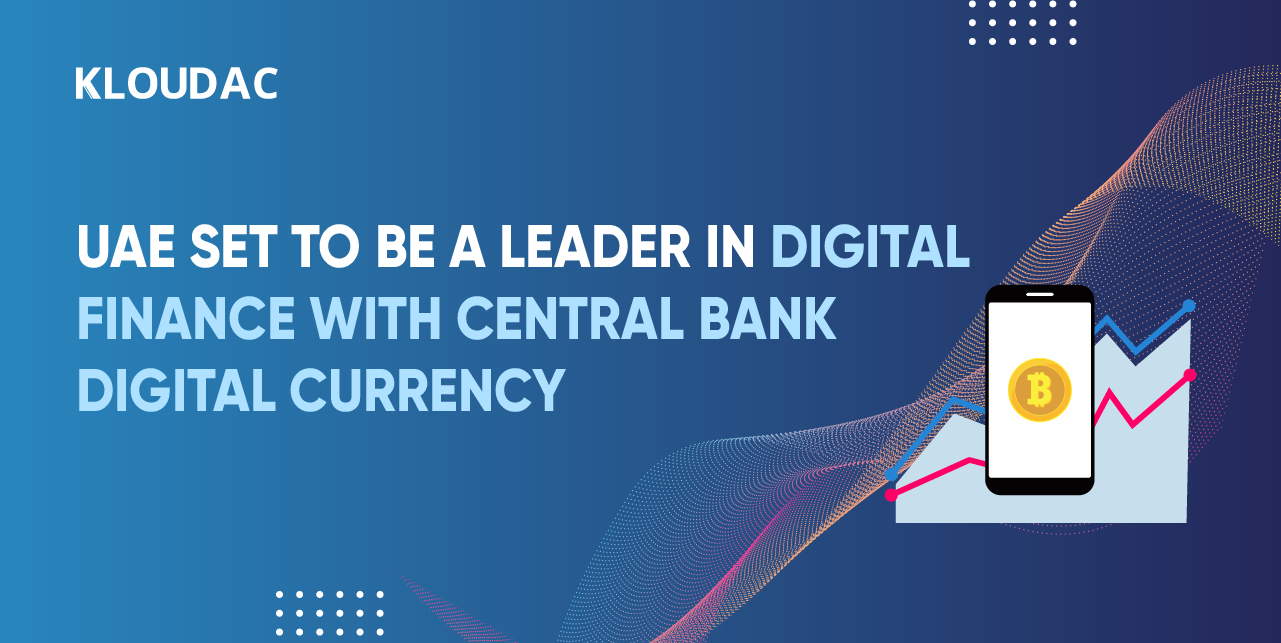The United Arab Emirates (UAE) is on the cusp of becoming a global leader in digital finance with the introduction of Central Bank Digital Currency (CBDC). As the world increasingly embraces digitalization, the UAE is taking proactive steps to ensure it stays at the forefront of the digital finance revolution. In this blog, we will explore how the UAE is poised to become a leader in digital finance with the introduction of CBDC and the potential benefits it can bring.
The UAE has been a trailblazer in many areas, and digitalization is no exception. With a robust and progressive regulatory environment, advanced technological infrastructure, and a strong appetite for innovation, the UAE has been actively exploring the potential of CBDC to transform its financial landscape.
The Central Bank of the UAE has been at the forefront of these efforts, actively studying and testing the use cases of CBDC since 2017. In September 2020, the Central Bank of the UAE launched “Project Aber,” a joint initiative with the Central Bank of Saudi Arabia to explore the use of CBDC for cross-border transactions. This project aims to develop a proof of concept for a CBDC that could facilitate seamless and efficient cross-border transactions between the two countries, potentially reducing transaction costs and increasing transaction speed.
The introduction of CBDC in the UAE has the potential to bring numerous benefits. One of the key advantages of CBDC is its potential to enhance financial inclusion. Digital currencies can provide a safe, secure, and cost-effective means for individuals and businesses to access financial services, particularly in underserved areas where traditional banking infrastructure may be lacking. CBDC can enable the unbanked and underbanked populations to participate in the formal financial system, opening up new avenues for savings, investments, and economic growth.
Another potential benefit of CBDC is its ability to enhance the efficiency and transparency of payments and settlements. Traditional payment systems can be time-consuming, costly, and prone to errors. CBDC can streamline payment processes, reducing the need for intermediaries and associated costs, and improving transaction speed and accuracy. Additionally, CBDC transactions are recorded on a distributed ledger, which can enhance transparency and reduce the risks of fraud and corruption.
CBDC also has the potential to foster innovation and stimulate economic growth. With a digital currency, developers can build new financial applications and services that leverage the advantages of CBDC. For example, CBDC can enable programmable money, where smart contracts can be embedded in digital currency transactions, allowing for automated payments, conditional transfers, and other innovative financial applications. This can create new business opportunities, attract investment, and stimulate economic growth in the UAE.
Furthermore, CBDC can enhance the resilience and stability of the financial system. Digital currencies are backed by central banks, which can provide greater stability and confidence compared to other forms of digital payment methods. CBDC can also enhance the ability of central banks to implement monetary policies, as it provides them with direct control over the money supply and allows for more effective implementation of monetary tools.
The UAE’s ambitious vision to become a leader in digital finance is supported by its advanced technological infrastructure. The country has a high penetration rate of smartphones and internet access, making it conducive for the adoption of CBDC. The UAE has also been actively promoting fintech and digital innovation through various initiatives, such as the Dubai International Financial Centre’s FinTech Hive and the Abu Dhabi Global Market’s Regulatory Laboratory (RegLab), which provide a supportive ecosystem for startups and innovators to test and develop new fintech solutions, including those related to CBDC.
KLOUDAC Accounting Firm Dubai, UAE
The introduction of CBDC also comes with its challenges and risks that need to be carefully addressed. KLOUDAC assists you with these challenges which include issues related to privacy, cybersecurity, financial stability, and regulatory compliance. The UAE’s regulators and policymakers need to work collaboratively with the industry stakeholders to develop robustness.
